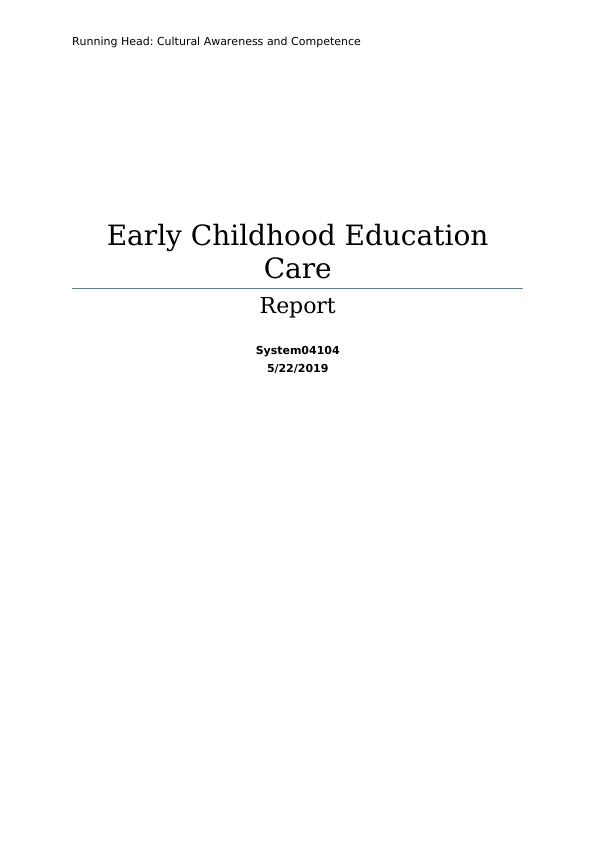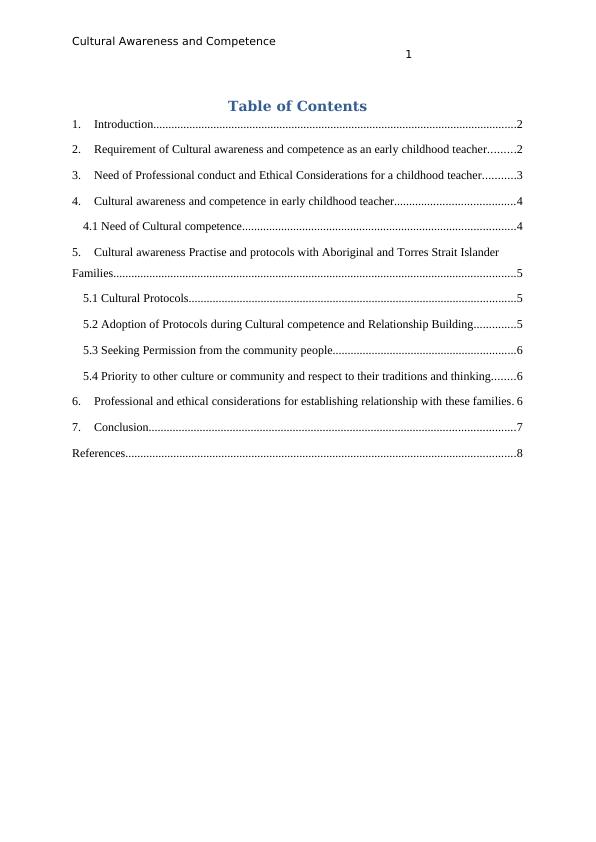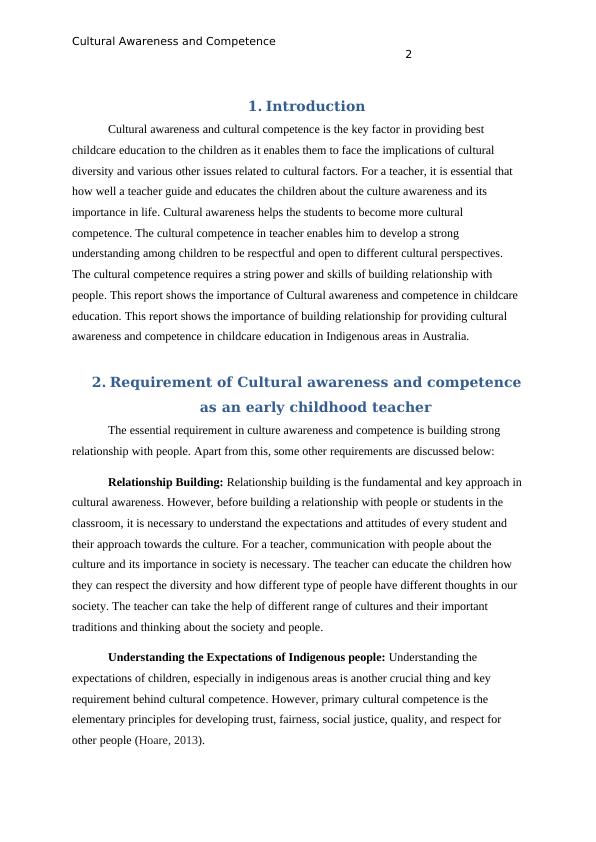Cultural Awareness and Competence in Early Childhood Education Care
10 Pages3079 Words409 Views
Added on 2022-11-14
About This Document
This report highlights the importance of cultural awareness and competence in early childhood education care. It discusses the requirements, professional conduct, and ethical considerations for establishing relationships with Indigenous and Torres Strait Islander families. It also covers cultural protocols, practical approaches, and the need for cultural competence in early childhood education.
Cultural Awareness and Competence in Early Childhood Education Care
Added on 2022-11-14
ShareRelated Documents
End of preview
Want to access all the pages? Upload your documents or become a member.
Early childhood education PDF
|16
|3331
|206
Cultural Awareness of Teachers in Early Childhood Education
|16
|3664
|166
Early Childhood Education and Care: Cultural Awareness and Ethical Considerations
|13
|3402
|268
Cultural Awareness and Competence of Early Childhood Teacher
|15
|3507
|172
Attitudes and Values towards Indigenous Peoples and Education
|6
|1462
|436
Aboriginal and Torres Strait Islander Education in ECEC
|12
|3358
|104



